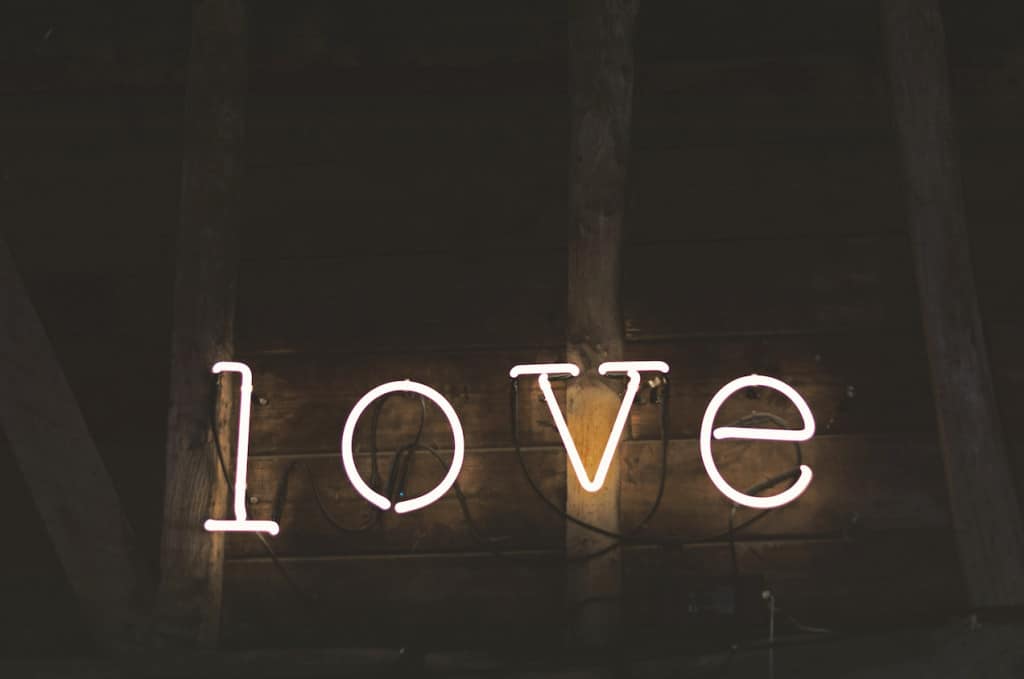Do you practice unconditional love?
Love is complicated. It’s messy, random and hard to define. In fact, much of the time we spend talking about love is talking about what exactly it is. Love is a deeply personal feeling, one that can be apparent and clear and beautiful without being describable. We don’t know how exactly to say we’re in love, or how we came to love someone, we just know it to be true. What are we talking about when we talk about unconditional love then?
Unconditional love, love that is without any asterisks, or perhaps even without reciprocation, doesn’t exist in a vacuum. It’s informed by classical conceptions of true altruism (selflessness), or self-sacrifice, and more than a little tied up in spirituality and the divine.
In the modern world it deserves close examination, and we need to ask some uncomfortable questions about its place and persistence in everyday life. Is unconditional love a healthy pursuit? Unconditional love has etymological ties to most of the world’s major religions. In Islam, unconditional love can only be directed towards Allah. In Christianity it’s the inverse, with God loving each human unconditionally; in the sense that God loves you even if you don’t love him.
In his 1960 book The Four Loves, C.S. Lewis brought this idea to a wider audience in his deeply personal and frank examination of the types of love in the world. Lewis upheld that the greatest love, one that must be in his own terms ‘achieved’, was reciprocating God’s own unconditional love with that of your own for him.
Unconditional love — in its most simplest form — means appreciating someone else for who they truly are. It means loving them when they are unlovable, and in spite of their imperfections and mistakes.
In both these religious traditions, this love forms a spiritual bond, a means by which one can become closer to an ostensibly unknowable and distant deity. God here is perfect, and whilst you may not be able to understand that perfection in its entirety, unconditional love is a way to recognise and give thanks for it. The unconditional love of a God is an extension of worship. Prostration that recognises perfection.
Whilst I have an interest in the spiritual and the religious, I walk the road of agnosticism. I lack the personal experience of a religious life and the commitment that comes with it. In talking about an unconditional love of God, I’m not seeking to pass judgment on the practice, but rather draw attention to its origins and cultural associations. When we have unconditional love for a person, we can retain some of these attitudes, and elevate them to a divine and flawless position. Here is where the ugly side of unconditional love rears its head because it flirts with obsession and self-flagellation.
Popular culture is riddled with examples of this, a protagonist who holds an unconditional love is often presented with a sort of tragic heroism. Particularly when the said protagonist is a man chasing the woman of his dreams with a pure and unflinching love. How many times have you heard the phrase ‘I’d do anything for you’ said on screen? It presents love as a sort of strength contest, that the person someone should be with is the person who ‘loves them the hardest’, someone who has completely lost any sense of themselves in their devotion. That a person can be won over like a prize if your love is blind enough. It may work in the movies but it isn’t a healthy real-world attitude. Particularly when unconditional love isn’t reciprocated, it can have the inverse effect of making one selfish and loathe the subject of their affections.
For a great example of this, I highly recommend (500) Days of Summer. Not only is the film a brilliant depiction of how a deep and unconditional love can be toxic, but a popular reaction to the film demonstrates how warped our perception of this is. Rather than seeing the unhealthiness of the protagonists obsessions and attitudes, audiences instead cast anger at the woman he supposedly loves for rebuking him. This reading of the film was so prevalent that its star Joseph Gordon-Levitt criticised it in 2011, two years after the film’s release.
This is why I think it’s important to examine how we view and conceive unconditional love in our everyday lives and culture. Do you think of your love as unconditional? Would you do anything for someone particularly special in your life? Really unpack that feeling. Would you kill and maim a stranger for someone you love? That’s the sort of question people don’t ask themselves. It is a far-fetched one, but it draws attention to how love is constructed in our culture as self-destructive, and passion is defined by the dramatic and obsessive. How love can make us build someone up by tearing ourselves down.
You may be thinking that I have narrowed unconditional love down somewhat. That in introducing the question of reciprocation I’ve complicated the definition. When you think of unconditional love you may think of a type of love that doesn’t require reciprocation. Maybe it goes beyond romantic relationships, to the familia. The unconditional love of a parent to their child. I would say that is a fair point.
The desire to bring happiness, even at the cost of our own, to those we care about is a beautiful thing. But it’s a desire that can run away from us, becoming self-destructive and blind. As I said before, love is messy and blurry. Unconditional love can be a gateway to a warped view of relationships, of others and of ourselves. To have a true and healthy love for someone, you must love yourself first. Even when love is reciprocated, worship and obsession can arise. Healthy relationships are born of understanding and recognition. If you’re in a relationship, look at the ways you seek to express your love. If it’s at the cost of your own happiness, ask yourself why you do it. Is it out of altruism, or is it because of your own preconceived notions of how love should be expressed?
In all this learning to love yourself first is important, this creates more room to love others. Allowing you to benefit more from the relationships that are around you. If ever you need someone, we recommend to get in touch with one of our relationship coaches. Who are available for you.




